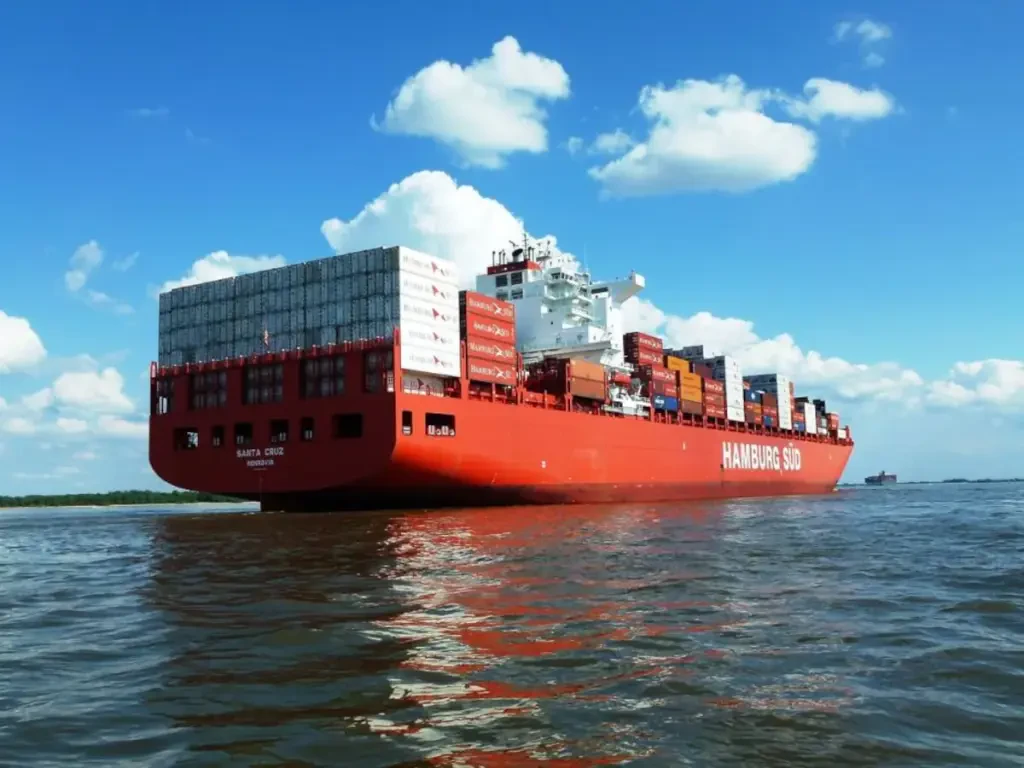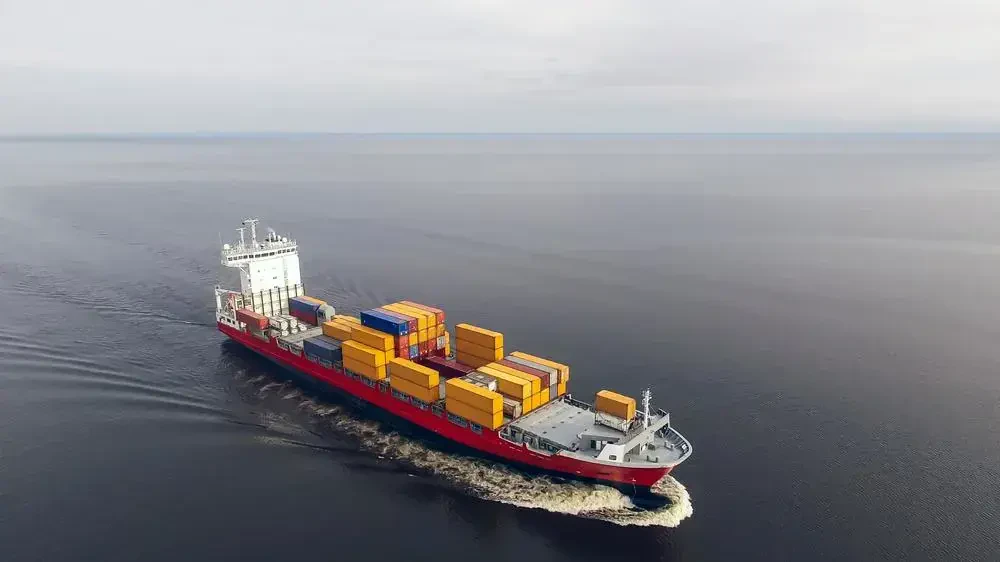Published by Chris Townsend
Last updated Jul, 19 2025

Moving from the United States to Canada is a significant life decision that comes with its unique set of challenges and rewards. Whether you're seeking a change in scenery, pursuing new career opportunities, or simply drawn to the diverse culture and natural beauty of Canada, understanding the logistics, costs, and benefits of such a move is crucial.
This comprehensive guide aims to provide you with an in-depth analysis of what it truly means to relocate from the US to Canada. We'll explore the financial aspects, including cost estimations and budgeting tips, as well as the practical benefits, such as improved quality of life and access to Canada's renowned healthcare system.
Our goal is to equip you with all the necessary information, making your transition as smooth and stress-free as possible. Join us as we delve into the intricacies of moving across the border, ensuring you're well-prepared for this exciting new chapter in your life.
How Much is the US to Canada Moving Cost?
The cost of moving from the United States to Canada typically ranges between $4,500 and $6,500. This estimate can vary significantly based on several key factors. The primary determinants of the overall cost include the size of your move, the specific services you require, and the final destination in Canada.
Additionally, the moving company you select plays a crucial role in determining the final price, as different movers have varying pricing structures. The time of year you choose to move can also impact the cost, with certain seasons being more expensive due to higher demand. It's important to consider these variables when budgeting for your move to Canada, as they can substantially affect the total moving expenses.
Understanding the Cost Factors of Moving to Canada
Moving to a new country like Canada involves various factors that can significantly impact the overall cost. Whether you're moving for Canadian permanent residence or just a change of scenery, understanding these factors is crucial for a smooth transition.

1. Destination and Distance
The distance between your current location and your Canadian destination plays a significant role in determining the moving cost. For instance, moving from New York to Toronto is generally less expensive than moving from California to Toronto. This variation is due to the differences in travel distance and logistics involved.
Moving to Canadian provinces varies in cost depending on their geographical location. For example, moving to a more remote province might incur higher transportation costs. It's essential to consider these aspects, especially if you're moving under programs like the Federal Skilled Worker Program or the Federal Skilled Trades Program, where your destination might be predetermined.
2. Size and Weight of Your Move
The volume and weight of the items you're moving are the most significant factors affecting the cost. A larger move means more resources in terms of labor, packing materials, and transportation. If you're moving to Canada for permanent residence, it might be an excellent opportunity to declutter and reduce the load, consequently lowering the moving costs.
For those moving under specific categories like the Express Entry system or as a skilled worker, it might be necessary to move a substantial amount of personal and professional belongings, which can increase the cost.
3. Packing Services
Choosing between professional packing services and self-packing is a critical decision. Professional packing, while more expensive, ensures the safety and proper handling of your belongings. This is particularly important for those moving delicate items or if you're a Canadian citizen returning with valuable goods.
Self-packing can save costs, but it's important to weigh the pros and cons. For instance, if you're a federal skilled worker or a permanent resident, you might have important documents and items that require careful packing.
4. Customs Clearance and Import Fees

Understanding the policies of the Canada Border Services Agency is crucial for international moves. Fortunately, moving to Canada from the US with used household goods typically doesn't incur tax or import fees. However, certain situations might require inspection and additional fees.
This aspect is particularly important for those applying for Canadian citizenship or permanent resident status, as they might be moving a significant amount of belongings across the border.
5. Storage Charges
If your move to Canada requires storage, either short-term or long-term, it's important to factor in these costs. Storage charges can vary, and they are usually calculated based on the volume of goods stored.
For individuals moving under the Express Entry system or as skilled workers, finding temporary storage solutions might be necessary if immediate accommodation isn't available upon entering Canada.
6. Moving Insurance
Insurance is a critical aspect of international moving, providing protection against potential damage. The cost of insurance typically ranges between 2% and 4% of the declared value of your household goods.
This is especially important for those moving to Canada for permanent residence or Canadian citizenship, as it ensures the safety of their belongings during the transition.
7. Special Packing and Crating
Specialty items require extra care and, therefore, additional costs. Items like pianos, artwork, or heavy safes need special packing and crating, which can cost anywhere from $300 to $1000 per item.
For those moving under the Canadian government's immigration programs, such as the Federal Skilled Worker Program, ensuring the safe transport of special items is crucial.
8. Possible Additional Charges
Be aware of potential additional charges such as stair fees, long-carry services, or shuttle fees. These can add up, especially in complex moving situations.
For permanent residents or Canadian citizens moving back, understanding these additional costs is vital for a realistic budget, especially if moving to urban areas with challenging access.
Additional Expenses to Consider When Moving to Canada
Moving to Canada, whether for Canadian permanent residence or as a skilled worker, involves more than just the immediate moving costs. It's crucial to consider the broader financial picture, including the cost of living, healthcare, education, and taxes.

1. Cost of Living in Canada
The cost of living in Canada varies significantly across different regions and cities. Understanding these variations is essential for anyone moving to Canada, especially those seeking Canadian citizenship or permanent residence.
In major cities like Toronto and Vancouver, the cost of living is notably higher compared to smaller cities or rural areas. For instance, housing costs in Toronto can range from $1,800 to $2,500 for a one-bedroom apartment. This variation in living costs should be a key consideration for anyone moving under the Federal Skilled Worker Program or the Express Entry system, as it directly impacts your budget and lifestyle.
On the other hand, smaller cities may offer lower living costs but could have fewer job opportunities, which is an important consideration for those seeking employment as skilled workers or under the Canadian Employer programs. Balancing the cost of living with job availability and lifestyle preferences is crucial for a successful transition to Canadian life.
2. Healthcare and Insurance
Canada's healthcare system is a significant attraction for many moving to the country, especially for those seeking permanent resident status or Canadian citizenship. However, it's important to note that there might be a waiting period before new residents become eligible for health coverage.
During this waiting period, or if additional coverage is needed, private health insurance becomes essential. This is particularly important for those moving under programs like the Federal Skilled Trades Program, where immediate healthcare coverage might not be available. Researching and comparing health insurance plans is crucial to ensure you and your family are adequately covered during your initial time in Canada.
Additionally, considering dental and vision insurance is important, as these are often not covered by the standard healthcare system. While some Canadian employers offer these benefits, others do not, making it necessary to purchase private insurance. This is an important consideration for anyone entering Canada, especially under the Express Entry system.
3. Education and Childcare
For families moving to Canada, the cost of education and childcare is a crucial factor. Understanding these costs is especially important for permanent residents and Canadian citizens who are relocating with children.

Canadian public schools offer free education to residents and citizens, but if you're considering private schooling, be prepared for higher costs. Private schools in Canada can charge tuition fees ranging from $10,000 to $40,000 per year, offering specialized programs and smaller class sizes. This can be a significant expense for families moving under the Express Entry system or as skilled workers.
Childcare is another major expense, with costs varying based on the type of service. Daycare centers can range from $800 to $2,000 per month, while hiring a nanny can cost between $15 and $25 per hour. These costs should be factored into your budget, especially if both parents are working, as is often the case with skilled workers or those moving to Canada for employment opportunities.
4. Taxes and Financial Considerations
Understanding the Canadian tax system is crucial for anyone moving to the country, particularly for those seeking permanent residence or Canadian citizenship. The tax system in Canada includes federal and provincial taxes, and newcomers must register for a Canadian Social Insurance Number (SIN) to be eligible to work.
The Goods and Services Tax (GST) in Canada is a value-added tax applied to most goods and services, currently at a rate of 5%. This is an important consideration for budgeting daily expenses. Additionally, understanding potential tax credits and deductions can help in financial planning, especially for those under the Federal Skilled Worker Program or Canadian citizens returning to the country.
Opening a Canadian bank account and transferring funds to Canadian dollars is also a key step in the relocation process. This helps in avoiding currency exchange fees and simplifies the process of paying for expenses in Canada. It's a crucial step for anyone entering Canada, whether as a permanent resident, a skilled worker, or under the Express Entry system.
Read More: Best Cross-Country Moving Companies – Top Movers For Your Relocation
Benefits of Moving From the US to Canada
Moving from the US to Canada offers a range of benefits, from a more relaxed political climate to superior healthcare systems. These advantages make Canada an attractive destination for those seeking Canadian permanent residence or Canadian citizenship.
1. Political Climate
Canada's political environment is notably less polarizing and more stable compared to the US. This is a significant draw for individuals seeking a more peaceful and less politically charged atmosphere, especially for those considering Canadian permanent residence or citizenship.
In Canada, the shorter campaign period means less political advertising and a more focused political discourse. This environment allows for more meaningful and respectful discussions about policies and governance.
For those tired of the divisive politics in the US, Canada offers a refreshing change. This aspect is particularly appealing to those moving under the Federal Skilled Worker Program or Express Entry system who are looking for a stable and welcoming environment.
2. Crime Rates are Low
Canada's low crime rates make it one of the safest countries in the world, a key consideration for families and individuals seeking a secure environment. This safety is a significant factor for those considering moving to Canada, whether as permanent residents, skilled workers, or Canadian citizens.
Despite less restrictive gun laws, Canada experiences far fewer gun-related crimes compared to the US. This lower rate of violent crime contributes to a higher quality of life and peace of mind for residents and immigrants alike. For those entering Canada under programs like the Federal Skilled Trades Program or seeking Canadian permanent residence, the country's safety is a compelling reason to move.

3. Quality Education
Canada's education system is renowned for its high standards and equitable access, making it an attractive destination for families and individuals valuing quality education. This is particularly relevant for those seeking Canadian permanent residence or citizenship, as education is a key factor in long-term success and integration.
Each Canadian province independently governs and funds its schools, ensuring a high level of education across the board. This decentralized system provides equal opportunities for all, including migrant children. For those moving to Canada under the Express Entry system or as skilled workers, the prospect of accessing top-tier education for their children is a significant draw.
4. Universal Healthcare
Canada's healthcare system is a major benefit for those moving from the US, especially for those seeking permanent residence or Canadian citizenship. The universal, publicly funded healthcare system ensures equal access to medical services for all residents, regardless of income.
This healthcare system, funded by taxes and free at the point of use, is a stark contrast to the US system. It provides peace of mind and financial security, especially for new immigrants who might be navigating the complexities of the Canadian government and healthcare policies.
For those moving under the Federal Skilled Worker Program or seeking permanent resident status, the healthcare system in Canada is a significant advantage.
5. Employment Prospects
Canada offers robust employment opportunities, especially for skilled workers and those entering under the Federal Skilled Worker Program or the Express Entry system. The country's diverse economy and inclusive policies make it an ideal destination for those seeking career growth and stability.
For individuals seeking Canadian permanent residence or citizenship, the job market in Canada is welcoming and offers a range of opportunities across various sectors.
The Canadian government and Canadian employers are known for their supportive policies towards skilled workers, making Canada an attractive destination for those looking to enhance their careers.

6. Cultural and Environmental Advantages
Canada is known for its rich cultural diversity and stunning natural environments, making it an appealing destination for those seeking a high quality of life. This is particularly attractive for permanent residents and Canadian citizens who value a multicultural society and access to pristine natural landscapes.
The Canadian provinces offer a unique blend of cultural experiences and environmental beauty, from the urban landscapes of Toronto to the natural wonders of the Canadian Rockies.
For those moving to Canada, whether through the Express Entry system, as skilled workers, or seeking permanent residence, the cultural and environmental richness of Canada adds to the appeal of living in this welcoming country.
Read More: Out Of Town Movers – Checklist For Hiring The Best Moving Company
Why Choose Our Services at Three Movers?
At Three Movers, we are dedicated to providing top-tier moving services that cater to a wide range of needs, ensuring a smooth and stress-free transition for our clients. Our services are designed to accommodate every aspect of your move, from packing to transportation, making us a one-stop solution for your relocation needs.
- Full-Service Packing and Unpacking: Our team of professionals handles all aspects of packing and unpacking, ensuring your belongings are safely and securely transported. We use high-quality packing materials and techniques to protect your items, regardless of the distance.
- Customized Moving Plans: We understand that every move is unique. Our experts work closely with you to create a tailored moving plan that fits your specific requirements, whether you're moving locally, long-distance, or internationally.
- Safe and Secure Transportation: Our fleet of modern, well-maintained moving trucks ensures that your belongings are transported safely. We employ experienced drivers and use the latest technology to track and manage your move.
- Storage Solutions: Whether you need short-term or long-term storage, we offer secure and flexible storage options. Our storage facilities are climate-controlled and monitored 24/7 for the safety of your belongings.
- Specialty Item Moving: From pianos to artwork, we have the expertise to move your specialty items with the care and precision they require. Our team is trained to handle delicate and high-value items, ensuring they arrive at your new destination in perfect condition.
- Corporate Relocation Services: We provide comprehensive relocation services for businesses and employees. Our corporate moving solutions are designed to minimize downtime and ensure a seamless transition for your team.
Conclusion
Moving from the US to Canada offers a host of benefits, from a peaceful political climate to a world-class education system and universal healthcare. As you plan your move, consider the various factors that will influence your moving costs and the additional expenses you may encounter in your new Canadian home.
At Three Movers, we are committed to making your move as smooth and stress-free as possible. Our range of services is designed to cater to all your moving needs, ensuring a seamless transition to your new life in Canada. Contact us today to start planning your move with a team that cares about your journey as much as you do.

FAQs
What is the average cost of moving from the US to Canada?
The average cost of moving from the US to Canada ranges between $4500 to $6500, depending on factors like the size of your move, the services you require, and your destination.
How can I reduce my moving costs?
You can reduce moving costs by decluttering and reducing the volume of items you need to move, opting for self-packing, and choosing an off-peak time for your move to get better rates.
Are there any items I can't bring into Canada?
Yes, Canada has specific regulations on what can be brought into the country. It's best to check with the Canada Border Services Agency for a list of prohibited items.
How long does it typically take to move from the US to Canada?
The duration of the move depends on various factors, including the distance, the mode of transportation, and the time taken for customs clearance. It can range from a few days to a couple of weeks.
Do I need special insurance for moving internationally?
Yes, it's advisable to have international moving insurance to protect your belongings during transit. The cost of insurance typically ranges between 2% to 4% of the declared value of your items.


